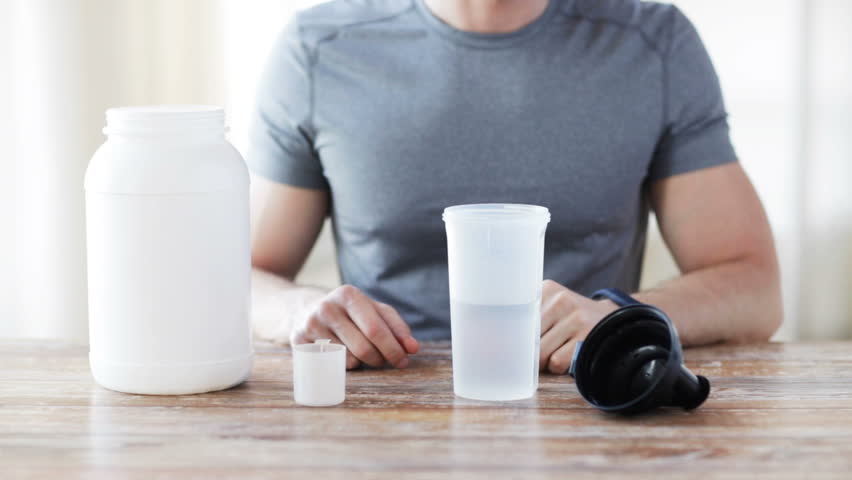Walk around the local grocery store and you’ll likely find an assortment of protein boosted cereals and even high protein spreads. Whether the type of protein is soy, whey, casein, milk or shakes… it’s all about one thing: protein.
The best way to get most of the protein that you need will always be food. But when you carry out a full-time job, have kids and always on the go you don’t always have time to prepare meals.. This is where protein shakes have their place.
THE BENEFITS OF PROTEIN SHAKES
Protein is used to manufacture hormones, enzymes, cellular messengers, nucleic acids, and immune-system components. Without adequate protein, our bodies can’t put together the structures that make up every cell, tissue, and organ, nor can it generate the biochemical substances needed for cardiovascular function, muscle contraction, growth, and healing. Without an adequate amount of protein our muscles wouldn’t heal up as quickly and could therefore lead to over training your muscle which could lead to injury.
Because solid food takes more time to digest and to break down the protein and send it to the muscles, it can be best to take a protein shake immediately following a workout. This however is very generalised and protein shakes are best included into your eating plan where it suits the individual best.
WHICH PROTEIN IS THE BEST CHOICE?
Whey protein has become a favourite supplement for those seeking to put on muscle and enhance their physiques as well as improve their health. To decipher which protein is best for a need, typically one would use a specific gauge of some sort (e.g., protein quality tests) to determine which protein to use. The most commonly used criteria to measure the quality of a protein is Biological Value (or BV for short), which is the amount of nitrogen (body protein in grams) replaceable by 100 grams of protein in the adult diet.
Proteins with the highest BV are considered by many to be the best for promoting growth, but this is an often-disputed issue among scientists. However, most scientists directly involved with protein research agree that the higher the BV, the better the protein is digested, used, and retained in the body. This should equate into more lean tissue gained, all things being equal (i.e. calories, exercise choice, etc.). It is, however, a very complicated topic not given to such black and white answers. The essential point is, whey is a complete protein with a very high BV and this means it contains all the essential and nonessential amino acids and boasts the highest branched-chain amino acid content found in nature.
Again, BV is only one criteria for proteins, and although important, people often make too big a deal of it. For example, beef has a low BV but has been a staple protein for athletes (and people in general) for decades. Soy has a low BV but has other potentially useful properties. So, as a general guide to choosing proteins, BV is something to consider but should not cause people to put blinders on to other proteins.
HOW MUCH SHOULD YOU TAKE IN?
The minimum amount of protein that you should take in for building muscle is 1 gram of protein per pound of body weight (for instance, if you weigh 200 pounds than the minimum amount of protein you should take in is 200 grams of protein for muscle growth). This again is very general so they type of work one does, there body frame all comes into consideration when workout out a total for an individual.
WHEN ARE THE BEST TIMES TO TAKE IN PROTEIN?
It is a very general phrase that protein shakes should be consumed post workout. This is due to the fact that the body can be seen as malnourished so by consuming a protein shake it will speed up the recovery process. This it true in many cases and can really improve the recovery time of an individual.
Following your workout, it’s a good idea to take in small meals containing high protein in about three to four hour intervals, thereby providing your muscles with a constant supply of protein to help your muscles heal. It is also vital to take in a protein drink or a slow burning protein
(such as casein or a night time protein) before you go to bed therefore providing your muscles with protein, since your body will be slowly depleted of protein as you sleep. Breakfast is a key meal as well, because your body awaits nourishment after sleeping for 8-12 hours. One of the best tips of advice I can give you though, is to eat consistently, day in and day out.
CONCLUSION
Regardless of your goals, protein should be seen as a high priority of any nutritional plan. It’s an essential ingredient for achieving optimal progress in physique enhancement and performance. It’s certainly no secret that any person who is generally active in sports and/or trains with weights or other resistance will benefit from getting enough protein. However, even those who don’t partake in strenuous exercise can find advantages to taking in protein. Many enjoy the anti-aging effects that a high protein diet can result in. But the only way to find out how beneficial protein can be for you, is to try it for yourself!
Take a look at the various PROTEINS that we stock and find one that can fast track your results!

